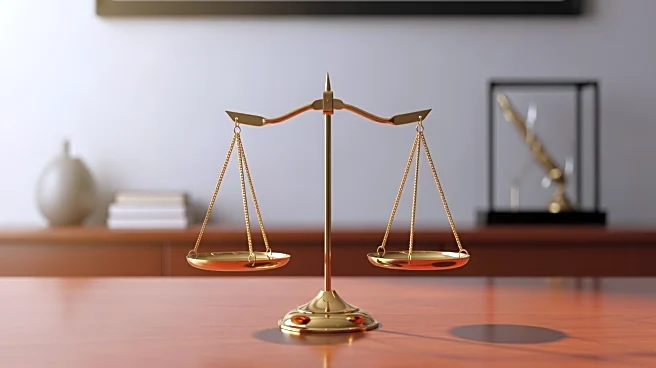What's Happening?
The recent Concession and Access Agreement (CAA) between the Government of Liberia and Ivanhoe Liberia (HPX/SMFG) has sparked concerns regarding its compliance with the 2019 Implementation Agreement signed between Liberia and Guinea. This agreement was
intended to ensure transparent and equitable use of Liberian rail and port infrastructure by mining companies. However, experts have raised questions about whether the CAA respects the procedures and spirit of the 2019 agreement. The Implementation Agreement established a multi-layered approval process involving both countries' oversight committees, which appears to have been bypassed in the CAA negotiations. Additionally, the CAA operates as a standalone commercial deal, lacking harmonization with Guinea's laws and fee structures, which could undermine the cooperative framework intended by the original agreement.
Why It's Important?
The concerns surrounding the CAA highlight potential diplomatic and legal challenges for Liberia. By potentially breaching the bilateral framework, Liberia risks diplomatic tensions with Guinea and may face legal disputes if Guinea claims its rights under the original agreement have been disregarded. The procedural lapses could weaken institutional safeguards designed to ensure fair valuation of national assets and erode confidence in the shared corridor concept. Furthermore, Liberia's legitimacy in international agreements could be questioned, potentially leading to international arbitration or compensation claims. The situation underscores the importance of adhering to established bilateral agreements to maintain transparency and accountability in cross-border infrastructure deals.
What's Next?
Liberia may need to pause and review the CAA to ensure alignment with the 2019 Implementation Agreement. This review could involve re-negotiating terms to harmonize pricing and governance structures with Guinea's laws and securing bilateral committee approval. Such steps would help restore confidence in the shared corridor concept and prevent potential diplomatic and legal disputes. Additionally, Liberia might consider strengthening oversight mechanisms to ensure future agreements comply with established frameworks, safeguarding national interests and maintaining international credibility.
Beyond the Headlines
The situation raises broader questions about the balance between commercial interests and adherence to international agreements. It highlights the ethical and legal dimensions of negotiating infrastructure deals that impact national sovereignty and regional cooperation. The case could set a precedent for how Liberia and other nations approach cross-border agreements, emphasizing the need for transparency and accountability in international partnerships.

















